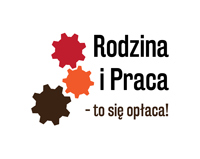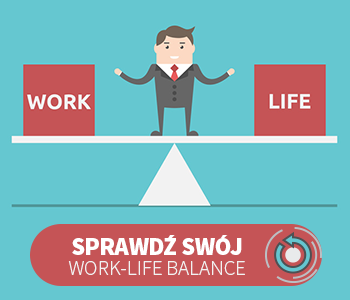Guide / przewodnik
In today’s world, maintaining work-life balance (WLB) is a big challenge for most of us, and its absence generates negative effects. Both employees and employers need effective support mechanisms in the area of reconciling various social roles. To meet these needs, the Polish Ministry of Family, Labour and Social Policy has prepared a web platform– a comprehensive, practical and intuitive source of knowledge.
The platform provides information on possible WLB solutions, their implementation, potential costs and benefits coming from the introduction of changes. Legal advice, good practices in the field of creating motivated and efficient teams, terminology, a practical WLB test – these are just some of the functionalities of this platform. Another one is a special search engine for tools. It matches optimum WLB solutions to the specific needs of different users: businesses of all sizes, depending on the field of activity, employees profile, cost of changes. The success of such a solution in Poland is best illustrated by the fact that within a month after the launching of the platform it was visited by more than 10 thousand individual users.
Supporting the work-life balance among women and men is one of the priorities set out in the EU programming documents – both in the European Pact for Gender Equality for the period 2011–2020 and the Strategy on gender equality 2010–2015. Making use of WLB still remains a challenge not only in Poland, but also in other EU countries, especially in countries of the so-called “new EU” which acceded to the Community after 2004.
Wider use of results and outcomes of the project may be very useful solution in other countries which struggle with convincing employers and employees to use reconciliation of work, family and private life mechanisms.
Obviously there are different solutions and laws in each Member State. However, the concept of developing a practical and comprehensive tool in form of an online platform for employers and employees seems to provide a universal solution, which should prove to be effective also in other countries. It will be universal due to the fact that the solutions foreseen in the platform will be based on the case studies carried out in different companies that varied according to their size, sector in the economy and business profile.
Therefore, we prepared of a guide presenting the adopted methodology and know-how relating to the elaboration and development of the platform.
We encourage international entities such as international organisations, government agencies, employer’s organisations, employee’s organisations or NGOs interested in promoting RM, for the application of a similar solution in other EU countries. The more common usage of WLB across the EU will also contribute to achieving objectives envisaged in Europe 2020 Strategy such as increase of women’s and men’s participation in the labour market and reduction of poverty.
WLB needs are universal, so such a tool as the Polish Internet platform will be useful in any circumstances. Which methodology to adopt, what you should consider and how to ensure a wide reach – we give you a practical guide that will provide answer to these and other questions.
The innovation of the platform includes i.a. allowing the employers to select the optimal and tailored solutions that work in different types of companies. The platform will also include information on the estimated costs, potential benefits and step-by-step actions resulting in the implementation of such solutions as well as examples of good practices and practical information on employees’ rights. In order to better disseminate the outcomes of the project it is planned to prepare, also in English, the practical guide on methodology and know-how of the platform. Thanks to this, it will be much easier to reach all international bodies that are interested in implementing RM and enables them to easily adjust the platform to their own needs.
The beneficiaries of this result include international entities interested in promoting RM such as international organizations, government agencies, employers’ organizations, employees’ organizations or NGOs. These entities will be able to make use of the practical and universal guide available in English, which will include the methodology and know-how relating to the development of the platform. Thanks to this knowledge, international stakeholders will be able to make use of the innovative solutions adopted in Poland and adapt them to the reality of their own countries. The dissemination of knowledge about the platform on the international area may contribute to the increase in the number of employers using RM.






